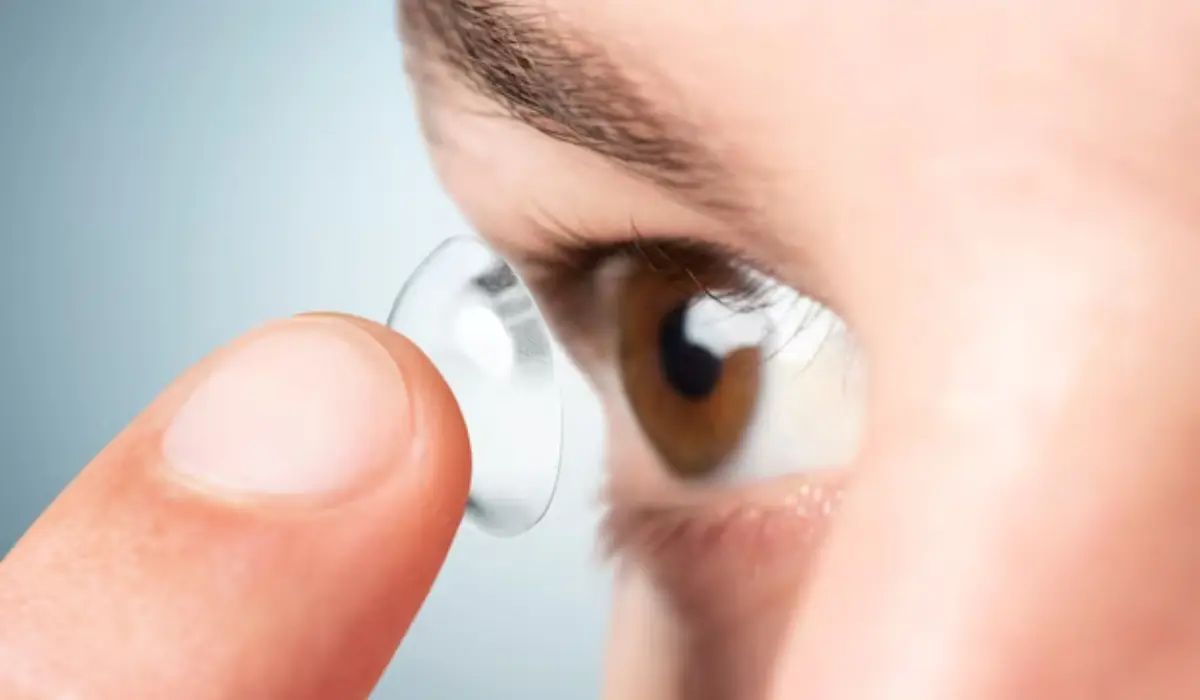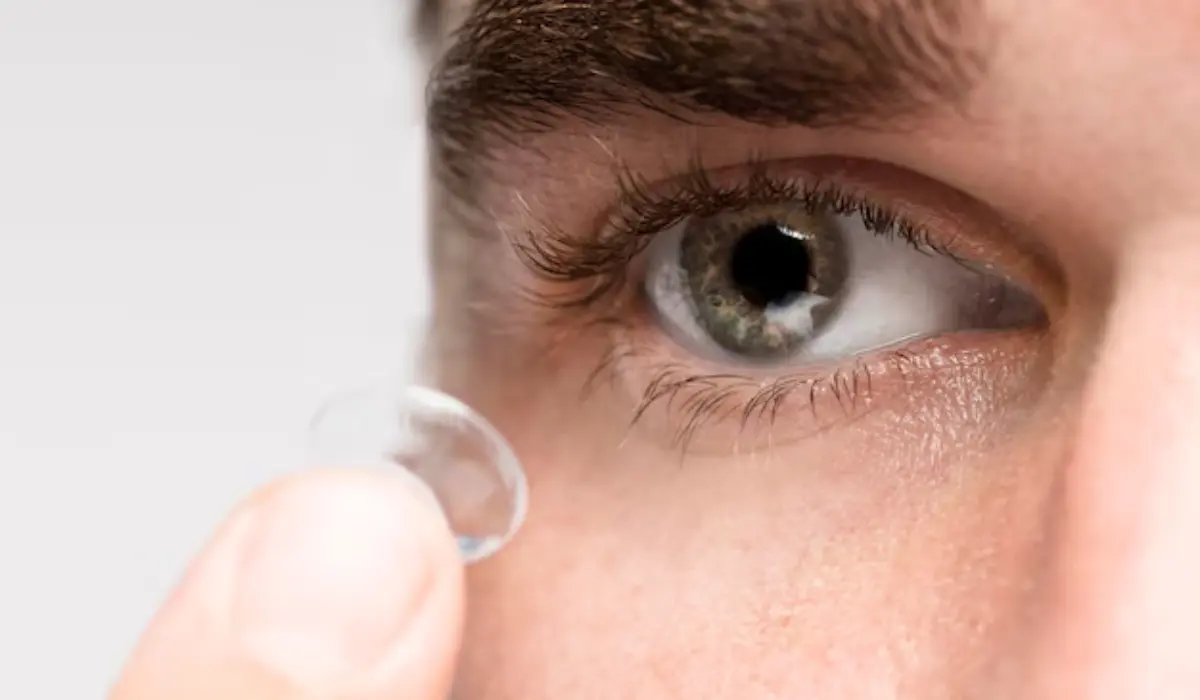Contact lenses are thin, curved lenses placed directly on the eye’s surface of the eye to correct vision or for cosmetic purposes. They are an alternative to eyeglasses and are used to correct refractive errors such as nearsightedness, farsightedness, astigmatism, and presbyopia.
Facts To Know About Contact Lenses: Everything You Must Know
Two types of lenses are soft and hard. While the former is made of flexible plastic materials that allow oxygen to pass through to the cornea, the latter is made of harder materials that allow clear vision and oxygen to pass through.
Soft glasses are comfortable and are ideal for daily wear while hearing glasses might take a while to adjust. However, there are some tips one must be aware of while wearing contact lenses.

There are multiple facts one needs to know about contact lenses and their uses including:
Vision Correction
Contact lenses are worn by people to cure myopia, hyperopia, and presbyopia. Astigmatism causing the deformed shape of the cornea can also be corrected using toric lenses that are specially created. Additionally, people who suffer from vision problems as age increases. Multifocal or bifocal lenses are worn by aged individuals to treat near or far-sightedness.
Advantages
Unlike eyeglasses, contact lenses move with your eyes, providing a more natural field of view and improved peripheral vision. Additionally, contact lenses are suitable for individuals who love engaging in various physical activities.
However, lenses don’t move frequently and can be used for sports or aerobics. Contact lenses are also used for cosmetic purposes like changing eye color and enhancing the original color of the eyes.
Considerations And Challenges
There could be some problems when it comes to adjusting the lenses. People also complain about having to wear it for many hours continuously. Cleaning it hasn’t been an easy task either.
Tips For Contact Lens Wearers
Wearing contact lenses can be a convenient and comfortable way to correct vision, but it’s important to follow proper care and hygiene practices to ensure the health of your eyes. Here are some tips for contact lens wearers:
1. Wash Your Hands
Before handling the contact lenses, use a mild-non-performed soap. Also, make sure to clean your fingernails and between your fingers to get rid of dirt and bacteria. Dry your hands with a lint-free towel to avoid leaving any fibers on your hands that might transfer to the lenses.
2. Follow The Schedule
Adhering to the recommended wearing schedule is crucial for maintaining eye health and comfort. It is best to consult a healthcare professional to know the regulations you need to follow daily and how frequently should you replace them.
3. Clean And Disinfect
Use the cleaning and disinfecting solutions specifically recommended for your type of contact lenses. Rub the lenses gently with the solution to remove protein and debris, then rinse them thoroughly. Avoid using tap water or saliva, as they may introduce bacteria or other microorganisms to your lenses and eyes.
4. Replace Regularly
Different types of contact lenses have specific replacement schedules(daily, bi-weekly, monthly). Replacing lenses as recommended reduces the risk of bacterial buildup, maintains lens comfort, and ensures optimal vision correction.
5. Avoid Sleeping In Lenses
Even if lenses are labeled for extended wear, it’s generally best to avoid sleeping in them regularly. Sleeping in lenses can reduce the amount of oxygen reaching of eyes, increasing the risk of infections and discomfort.
6. Handle Lenses Carefully
Use the pads of your fingers to handle lenses, avoiding sharp objects or long fingernails that can damage them. When applying or removing makeup, do so after inserting or removing your lenses to prevent contamination.
7. Keep Lenses Hydrated
If your eyes dry, use rewetting drops recommended by your eye care professional. Avoid using saliva or water to clean them.
8. Follow The 20-20-20 Rule
To reduce eye strain, take a break every 20 minutes by looking at something 20 feet away for at least 20 seconds. This helps alleviate eye fatigue, especially for those who spend extended periods staring at screens.
9. Regular Eye Exams
Schedule routine eye exams to monitor your eye health, check the fit of your lenses, and update your prescription if necessary.
10. Pay Attention To Symptoms
If you experience redness, irritation, blurred vision, or discomfort, remove your lenses immediately. Consult an eye care professional to address any issues related to contact lenses.
If proper hygiene and care are not maintained it could lead to multiple issues that could prove fatal. For instance, individuals who wear contact lenses for prolonged periods often complain of eye infections that accumulate inside due to unclean surfaces. Secondarily, Corneal ulcers are very common in individuals who don’t use contact lenses carefully.
This means your eye could have an open sore similar to your hand or eyes which may even result in its total removal. Thirdly, contact lenses can contribute to dry eyes, especially if lenses are not adequately hydrated. If you are someone who wears it for longer periods, you might want to keep this one in mind.
Additionally, mishandling lenses could also lead to corneal abrasions which are quite painful. Not only can it cause scratches but also redness and sensitivity to light. People have also reported bumps on the eyelids owing to their unclean habits when it comes to using contact lenses as it can escalate further.
Also read:- Best Eye Bag Treatment- Recommended By Dermatologist
Sum Up
The eyes are the most important sensory organ in your body. They are to be very delicately dealt with. Contact lenses sure enhance their beauty or in some cases help us see things clearly, their impact on the eyes cannot be ignored either. The intensity with which it affects the sight, could even lead to permanent loss of vision which is not the outcome you might be hoping for.
Therefore contact lens wearers must exercise caution when using it in place of spectacles. Its convenience or portability is beyond deniable but one should also take care of it exclusively like making a separate storage place for it, away from the reach of children, and handling them with clean hands.

